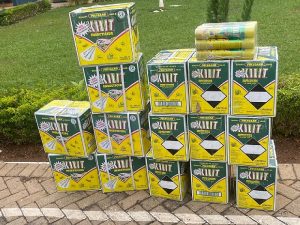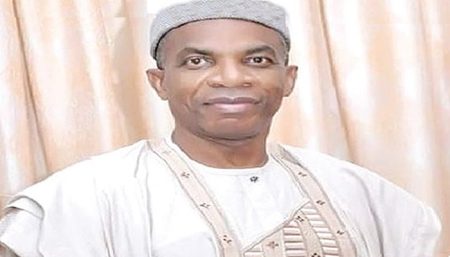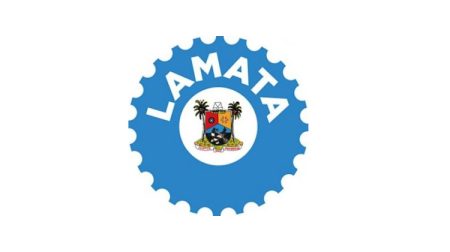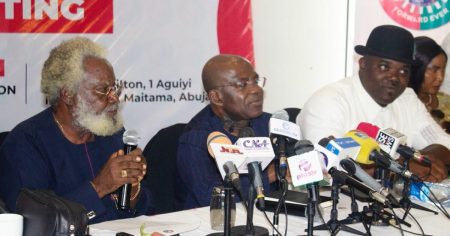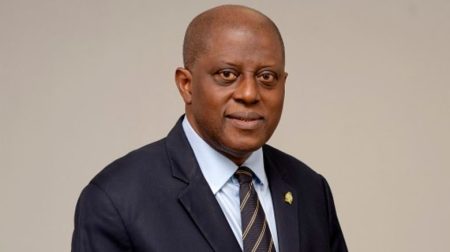The Central Bank of Nigeria (CBN) injected $4.1 billion into the foreign exchange market during the first half of 2025, a 215% increase compared to the $1.3 billion injected in the same period of 2024. This intervention, as reported by CSL Stockbrokers, aimed to stabilize the naira against the US dollar and address liquidity challenges. While the naira did appreciate slightly from N1,535/$ to N1,530/$ during this period, concerns remain about the long-term sustainability of this strategy given declining oil revenues, subdued foreign portfolio investment, and uncertainties surrounding external financing. The CBN’s substantial intervention in April, when the naira weakened to N1,630/$ due to US trade tariff announcements, underscores the bank’s commitment to managing exchange rate volatility.
Despite the CBN’s efforts, challenges persist. Oil exports, a major source of foreign exchange, are projected to decline by 20% in 2025 due to lower prices and production constraints. Although foreign participation in the Nigerian equities market increased, outflows continued to exceed inflows, indicating investor hesitancy. CSL Stockbrokers projects that foreign exchange inflows could remain under pressure in the latter half of 2025, limiting further naira appreciation. The firm also forecasts potential interest rate cuts by the CBN in the fourth quarter to stimulate economic activity, but warns that this could weaken the naira by reducing the attractiveness of naira-denominated assets for foreign investors. However, upgrades to Nigeria’s sovereign credit ratings and potential inclusion in prominent bond and market indices could potentially boost investor confidence and support foreign exchange inflows.
CSL Stockbrokers estimated the fair value of the naira at N1,647/$, slightly lower than their previous estimate. They anticipate the CBN will continue defending the naira, keeping it within the N1,500-N1,600/$ band in the second half of 2025. However, the sustainability of this approach hinges on improvements in foreign exchange inflows through increased oil revenues, renewed foreign direct investment and foreign portfolio investment momentum, or access to external financing. Without these improvements, the CBN’s intervention strategy may face increased scrutiny in the coming months.
Beyond the currency market, the overall economic outlook presents a mixed picture. Real GDP growth projections for 2025 have been revised downwards to 3.7%, with consumer spending and net exports acting as drags. Inflation is expected to average 22.9%, significantly lower than the previous year, due to improved exchange rate stability and base-year effects. However, the 2025 budget deficit is projected to widen to 5.8% of GDP, exceeding the official forecast, due to revenue shortfalls from both oil and non-oil sources. This could necessitate increased domestic borrowing by the government, potentially straining public finances.
Adding to the complexity, Nigeria’s gross external reserves decreased by $3.67 billion in the first half of 2025, dropping from $40.88 billion in January to $37.21 billion by June. This contrasts with the increase observed in the same period of 2024. This decline is likely attributed to increased foreign exchange demand, ongoing external debt repayments, and potential shortfalls in oil sales and remittances. Analysts also believe the CBN’s interventions in the foreign exchange market to stabilize the naira contributed to this drawdown. Experts emphasize that Nigeria operates a managed float exchange rate regime, where market forces play a significant role, but the CBN intervenes to prevent excessive volatility. While acknowledging the positive impact of CBN interventions on stability, some argue that more needs to be done to boost non-oil sources of foreign exchange inflows to achieve long-term sustainability.
Market reactions and expert opinions offer further insights. The naira appreciated to a four-month high against the US dollar, closing at N1,518/$, attributed to improved foreign exchange liquidity and renewed CBN intervention. Analysts project continued stability in the naira’s exchange rate, citing factors such as CBN interventions, ongoing foreign exchange reforms, and steady oil export revenues. While some experts view the CBN’s actions as a return to traditional price stability measures necessary for attracting foreign investment, others caution against over-reliance on interventions, emphasizing the need for structural reforms and diversification of foreign exchange sources. The private sector generally welcomes the CBN’s interventions for providing stability, which aids in planning and reduces uncertainty, but concerns about the high exchange rate and the need for long-term solutions persist. The consensus is that while short-term interventions are necessary, sustained economic stability requires addressing structural issues and fostering a more diversified and resilient economy.




